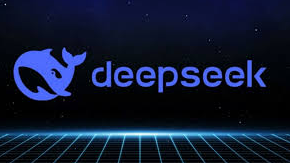Singapore’s Ministry of Trade Responds to US Investigation into DeepSeek’s AI Chip Acquisition
A recent social media post by Ho Ching, former CEO of Temasek Holdings and spouse of Senior Minister Lee Hsien Loong, has garnered significant attention after she discussed the Chinese AI startup DeepSeek. The post highlighted DeepSeek’s innovative approach to AI technology, which provides a more cost-effective and data-efficient alternative to American-made AI models, causing a stir in the global AI community.
Soon after, the US government launched an investigation into whether DeepSeek had circumvented export restrictions by acquiring AI chips from Nvidia via third-party sellers in Singapore. Bloomberg reported that US authorities were scrutinising the potential violations linked to these transactions.
In response to the inquiry, Singapore’s Ministry of Trade and Industry issued a statement on February 1, reiterating the city-state’s adherence to the rule of law. The Ministry also echoed Nvidia’s comments, clarifying that there is no evidence to suggest that DeepSeek had acquired restricted products through Singapore channels.
The viral post by Ho Ching, which cited Morgan Brown, Dropbox’s Vice President of AI, further fuelled the online conversation. The post was widely shared, accumulating 868 shares, with many users praising its clarity and simplicity. However, some questioned the lack of proper attribution, as Ho Ching did not credit the original source in her post. She later clarified that she was quoting Morgan Brown but did not provide the source’s name, leading to mixed reactions from her audience.
Morgan Brown’s original remarks, posted on January 27 on platforms such as X and LinkedIn, also gained significant traction, with many users circulating the post without attribution.
In a continuation of her interest in AI advancements, Ho Ching shared a link on February 3 about Alibaba’s new AI model, Qwen2.5, which reportedly outperforms DeepSeek, ChatGPT, and Meta’s Llama. She remarked that the launch was a “New Year’s gift from Alibaba,” emphasising her perspective on the ongoing AI competition.



Leave a Reply